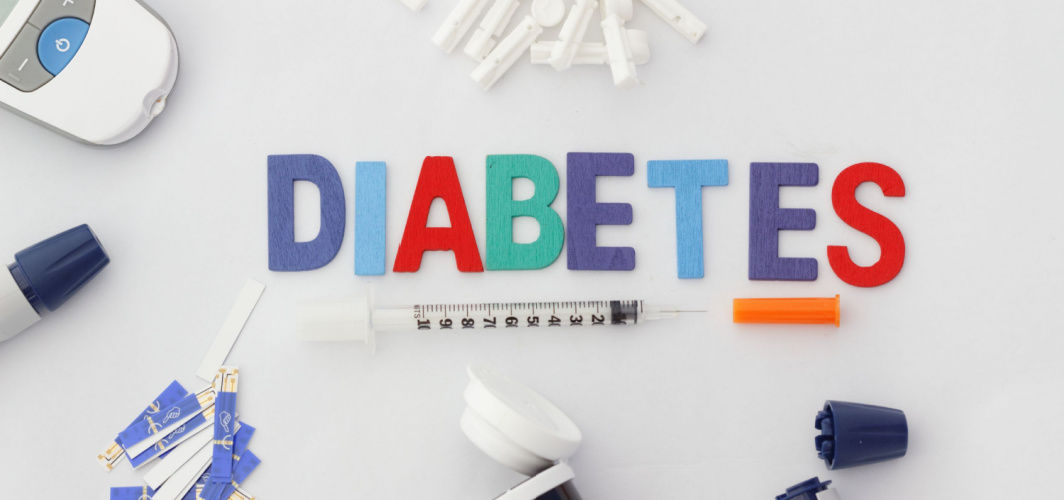Diabetes Management
Diabetes Symptoms: Educate Yourself On The Early Warning Signs
3 min read
By Apollo 24|7, Published on - 14 November 2022, Updated on - 26 October 2023
Share this article
0
0 like

Diabetes is not an alien term anymore. Everyone knows about this menace that causes blood sugar to rise to a dangerous level. However, it is important to understand that type 2 diabetes is a preventable disease. Out of all the preventable measures, educating oneself about the early symptoms of diabetes is the most vital thing that can help curb this endemic.
World Diabetes Day: "Education to protect tomorrow"
World diabetes day is celebrated every year on the 14th day of November. This year, the theme is "education to protect tomorrow". The theme centres around the prevention of diabetes through education. This approach will help in preventing the rise in the number of individuals suffering from diabetes and prediabetes. It is also important to educate all those already diagnosed with diabetes to effectively manage diabetes in the long run.
Early Signs & Symptoms of Diabetes
It is advisable to consult a diabetologist or visit a hospital if you notice the following early signs of diabetes.
- Excessive thirst: You may notice that you feel thirsty more than usual.
- Frequent urge to urinate: The number of times you visit the washroom increases significantly, especially during the night.
- Unexplained weight loss: People or near ones may notice that you are losing weight rapidly without any reason.
- Fatigue in daily activities: You may feel unduly tired and breathless during activities that were effortless earlier.
- Increased hunger: Along with thirst, you may experience hunger pangs anytime during the day, even after a wholesome meal.
- Blurry vision: Reading, writing, riding, or driving at night and difficulty in viewing an object or signboard from a distance may be experienced. Some people may also experience a loss of balance and anxiety in darkness.
- Dry and itchy skin: Your skin may show patches of dry skin with an increased urge to scratch, particularly the hands, fingers, shin, and feet.
- Dark skin: You may experience darkening of the skin, especially on the back of the neck and armpits (medically known as acanthosis nigricans).
- Tingling and numbness in hands and legs: This indicates nerve damage due to a rise in blood sugar affecting the nerves of the hands and legs. It can also lead to loss of balance and weakness in holding an object.
It is vital to understand here that these are some of the important signs and symptoms of diabetes and should not be considered conclusive of diabetes. Consulting a doctor and getting yourself checked for blood sugar levels will help diagnose diabetes more accurately.
India is considered the diabetes capital of the world. This is due to a huge number of people getting diagnosed at a later stage of the disease. Early symptoms of diabetes may go unnoticed, leading to long-term complications and suffering. Educating the masses on the early warning signs of diabetes may help reduce the impact of diabetes in our country. Consulting a doctor or visiting a hospital is vital in the accurate diagnosis of diabetes.
Consult An Apollo Diabetalogist
You can also manage your diabetes like a pro with Apollo 24|7's 12-week empower programme.
Medically reviewed by Dr Sonia Bhatt.
Diabetes Management
Leave Comment
Recommended for you

Diabetes Management
Top 5 Misconceptions About Diabetes- Know The Facts Here!
Diabetes is one of the leading global public health concerns. Despite its increasing prevalence around the world, there are plenty of myths and misconceptions associated with the condition and its treatment. To deal with diabetes, it’s vital to know what’s true and what’s not. So, here is more about some common misconceptions about diabetes and the truth behind them.

Diabetes Management
Which Age Group is the Most Susceptible to Diabetes?
The susceptibility to diabetes varies with age. Type 1 diabetes is often diagnosed in childhood or adolescence due to an autoimmune response. In contrast, Type 2 diabetes is strongly linked to middle and older age, with risks rising significantly after the age of 45. Gestational diabetes can develop in anyone during pregnancy, but the risk increases as one ages. Factors like physical activity, metabolic changes, body composition, and genetics influence age-related susceptibility. Early detection and management are crucial, involving regular check-ups, blood sugar monitoring, a balanced diet, and tailored approaches for older adults with coexisting health conditions. Awareness and proactive health measures are vital for effective diabetes management across age groups.

Diabetes Management
Keeping an Eye on Diabetic Retinopathy
Diabetic retinopathy is a complication arising from uncontrolled blood sugar levels. The increased blood glucose levels damage the blood vessels in the retina. It progresses through stages: background retinopathy (micro-aneurysms), and proliferative retinopathy (abnormal blood vessel growth and vision loss). Regular screenings and lifestyle modifications can help prevent or manage diabetic retinopathy.
Subscribe
Sign up for our free Health Library Daily Newsletter
Get doctor-approved health tips, news, and more.
Visual Stories

8 Fruits That are Incredibly Healthy for Diabetes
Tap to continue exploring
Recommended for you

Diabetes Management
Top 5 Misconceptions About Diabetes- Know The Facts Here!
Diabetes is one of the leading global public health concerns. Despite its increasing prevalence around the world, there are plenty of myths and misconceptions associated with the condition and its treatment. To deal with diabetes, it’s vital to know what’s true and what’s not. So, here is more about some common misconceptions about diabetes and the truth behind them.

Diabetes Management
Which Age Group is the Most Susceptible to Diabetes?
The susceptibility to diabetes varies with age. Type 1 diabetes is often diagnosed in childhood or adolescence due to an autoimmune response. In contrast, Type 2 diabetes is strongly linked to middle and older age, with risks rising significantly after the age of 45. Gestational diabetes can develop in anyone during pregnancy, but the risk increases as one ages. Factors like physical activity, metabolic changes, body composition, and genetics influence age-related susceptibility. Early detection and management are crucial, involving regular check-ups, blood sugar monitoring, a balanced diet, and tailored approaches for older adults with coexisting health conditions. Awareness and proactive health measures are vital for effective diabetes management across age groups.

Diabetes Management
Keeping an Eye on Diabetic Retinopathy
Diabetic retinopathy is a complication arising from uncontrolled blood sugar levels. The increased blood glucose levels damage the blood vessels in the retina. It progresses through stages: background retinopathy (micro-aneurysms), and proliferative retinopathy (abnormal blood vessel growth and vision loss). Regular screenings and lifestyle modifications can help prevent or manage diabetic retinopathy.